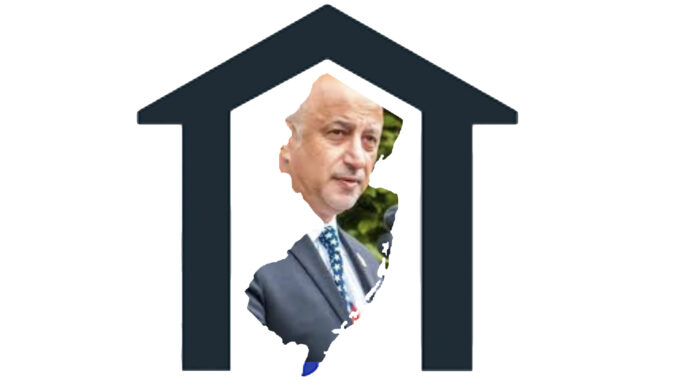
MONTVALE, N.J.—Undeterred by a pair of rejections in state Superior Court, a coalition of 27 towns has filed a federal lawsuit seeking to stop New Jersey’s fourth round of affordable housing mandates, alleging violations of the equal protection clauses of both the U.S. and New Jersey constitutions.
The Local Leaders for Responsible Planning (LLRP) filed the suit April 24 in U.S. District Court, calling the mandates “unfair, outdated, and unworkable.” The lawsuit challenges the Urban Aid Classification, which imposes new affordable housing obligations on suburban towns while exempting so-called “urban aid” municipalities from constructing new units.
The coalition claims the policy is inequitable and the product of “backroom deals between state officials and special interests — while suburban families were left out.”
Local Leaders for Responsible Planning includes:
- Bergen County: Allendale, Closter, Franklin Lakes, Hillsdale, Montvale, Norwood, Old Tappan, Oradell, Washington Township, Westwood, Wyckoff
- Morris County: Denville, East Hanover, Florham Park, Hanover, Mendham, Montville, Wharton
- Essex County: Cedar Grove, Millburn
- Hunterdon County: West Amwell
- Monmouth County: Wall, Holmdel
- Passaic County: Little Falls, Totowa
- Salem County: Mannington
- Somerset County: Warren
Montvale Mayor Mike Ghassali, who leads the coalition, said the urban aid classification is outdated.
“It began over 40 years ago when most new development was suburban,” he said. “Now, new development is split nearly 50/50 between urban and suburban areas.”
“Every community should do its part — but Trenton’s suburb-only housing plan just isn’t fair,” Ghassali said. “We are in federal court because our communities are not receiving equal protection under the law. We are speaking out to protect the character of our neighborhoods.”
He added, “We’re standing up for the moms, dads, and seniors who want good schools, safe streets, and open space.”
Ghassali has said Montvale’s affordable housing stock represents 10% of the borough’s total, and that obligations calculations often ignore environmental constraints and infrastructure costs.
Housing advocates respond
Fair Share Housing Center spokesperson Jag Davies told Pascack Press that the federal filing “rehashes many of the same arguments that have already failed several times in state court.”
“While it’s disappointing that a few wealthy communities continue to spend local taxpayer dollars opposing the creation of much-needed affordable housing, they represent only a small fraction — less than 5% — of New Jersey municipalities,” Davies said.
A recent Fair Share Housing Center survey found that 85% of 440 towns participating in the fourth round (2025–2035) adopted obligation numbers the center accepted.
Davies noted that challenges brought by Fair Share to 68 towns’ calculations recovered an additional 4,959 affordable homes.
In its lawsuit, LLRP argues: “The law establishes a classification that imposes a ‘prospective need’ affordable housing obligation upon non-urban aid municipalities, while exempting urban aid municipalities.”
Ongoing disputes
Along with the federal lawsuit, Ghassali said LLRP has filed three additional lawsuits in state court, including one challenging the Housing and Mortgage Finance Agency (HMFA) for issuing rules allegedly crafted in consultation with the Fair Share Housing Center and the New Jersey Builders Association, without public input.
The NJBA has separately challenged affordable housing numbers in 159 towns, with disputes now being mediated by the state’s Affordable Housing Dispute Resolution Program. Municipal obligations must be finalized by April 1, 2025, though several Pascack Valley towns were awaiting confirmation into late April.
LLRP first filed suit against the amended affordable housing law in September 2024, initially with nine towns on board. Two state court challenges by the group were rejected earlier this year. The coalition has also questioned the legality of using retired judges as mediators, citing potential conflicts.
Ghassali cited public documents showing that HMFA shared confidential draft rules with Fair Share and the builders’ association. “There is no fairness when the state conspires with builders and housing special interests to write affordable housing rules, all without any input from our communities,” he alleged.
Davies dismissed that claim. “HMFA requested public comments and held meetings with a variety of stakeholders, including the League of Municipalities,” he said.
Davies added that urban municipalities continue to bear substantial affordable housing responsibilities, particularly through the rehabilitation of existing units, and said the idea that urban municipalities have no obligations “is just not true.”
Fair Share Housing Center reports that since the Mount Laurel Doctrine’s inception in 1975, more than 75,000 affordable homes — including 25,000 built since 2015 — and over 130,000 middle-class homes have been created in New Jersey, now housing more than 400,000 residents.
